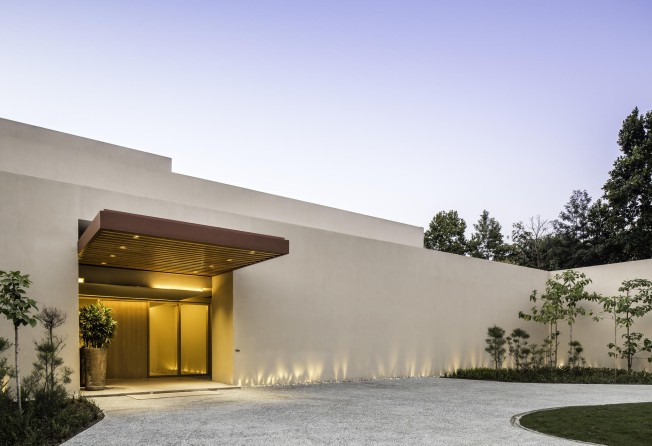Hot spots: Vana Malsi Estate, Dehradun
Jeff Chu

What is it? A new wellness retreat set amid 20 hectares of lychee and mango groves and sal forest in the Himalayan foothills of India.
Wellness retreat? Once through its gates, the hustle and bustle of the streets give way to the rustle of the trees and the melodies of a traditional flautist playing in a pavilion at the compound's heart. It's as if Veer Singh, Vana's creator, is suggesting that time passes at a different pace behind these walls. The Spanish architects who designed the estate intended it to be a destination, not a base from which to explore the area. Singh hired doctors trained in traditional Eastern healing, and he takes the word "retreat" seriously - hence, the minimum stay of three nights, though Vana's doctors would prefer you checked in for at least seven.
Doctors? On arrival, each guest has a consultation with a doctor or specialist to determine how to maximise their time at Vana. The treatments draw on ayurvedic, Tibetan and Chinese medicine.
What might they prescribe? No mani-pedis here. The treatments range from massage to acupuncture to more exotic experiences such as chu lum, a bracing Tibetan medicinal bath meant to cleanse the body of toxins. The all-inclusive tariff includes one treatment per day, though you're welcome to request more.
What do I do the rest of the time? Relax and put away your own clothes; Vana provides organic cotton kurtas and pyjama-like bottoms to wear. Take a yoga class. Work out. Swim. Wander the sal forest. Nap. Meditate - the luxurious suites have yoga rooms adorned with bodhisattvas painted by monks from the nearby Tibetan Buddhist abbey. Read - the library has an extensive collection of the writings of the Dalai Lama and Thich Nhat Hanh, but also Tintin and Asterix.
Where did the idea for Vana come from? Singh, the scion of a well-to-do Indian family, has long had an interest in healthy living and organic eating - much to his mother's dismay, he worked on an organic farm in Spain for a while. "Wellness is our focus, and we mean that holistically," he says. "This can mean you physically feel better. It can mean your spirit is more joyful. It can mean you are inspired by our design or our music. It can mean you are a little bit provoked to think differently about food and the environment."
So how is the food? The highest compliment one can pay is to say that it doesn't taste healthy, although it is. Most ingredients are organic and sourced locally while many of the herbs come from the estate's own garden. Breakfast can mean a bowl of congee; a glass of apple, parsley, ginger and zucchini juice; zucchini parathas; scrambled eggs; or all of the above. At dinner you may opt for an ayurvedic thali prepared in consultation with your doctor and tailored to your particular body type. And in your room, you'll find a cookie jar, replenished daily, filled with linseed shortbread or peanut-butter biscuits.
And the service? The smiling staff, who "Namaste" guests from dawn to dusk, are attentive without being invasive.
Sounds like you'd never want to leave. Alas, you must, but not empty-handed. Vana's team will send you away with your own kurta, as well as customised advice about diet, exercise and therapies to do at home. I left with careful instructions about yoga-based breathing techniques designed to alleviate anxiety as well as admonishments to stay away from citrus fruit and yogurt.
How much will this set me back? Double rooms start from 47,000 rupees (HK$6,230) per night, including meals, treatments and transfers from Dehradun airport. For more information, visit www.vanaretreats.com